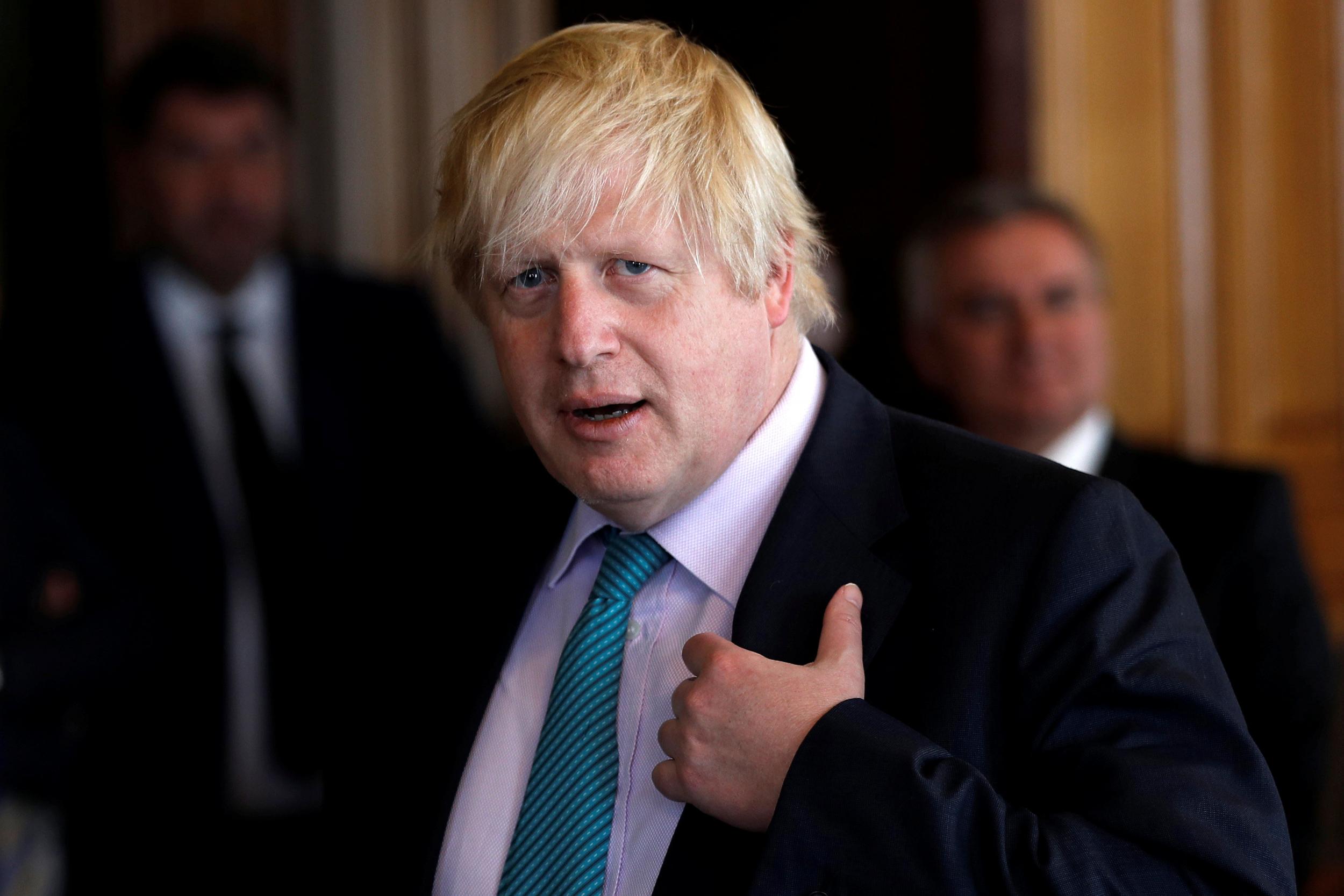Syria gas attack: Assad must be 'held responsible' after official ruling sarin was used, says Boris Johnson
Banned toxin caused deaths of 90 people in rebel-held Khan Sheikhoun earlier this year, official investigation concludes

Your support helps us to tell the story
From reproductive rights to climate change to Big Tech, The Independent is on the ground when the story is developing. Whether it's investigating the financials of Elon Musk's pro-Trump PAC or producing our latest documentary, 'The A Word', which shines a light on the American women fighting for reproductive rights, we know how important it is to parse out the facts from the messaging.
At such a critical moment in US history, we need reporters on the ground. Your donation allows us to keep sending journalists to speak to both sides of the story.
The Independent is trusted by Americans across the entire political spectrum. And unlike many other quality news outlets, we choose not to lock Americans out of our reporting and analysis with paywalls. We believe quality journalism should be available to everyone, paid for by those who can afford it.
Your support makes all the difference.British Foreign Secretary Boris Johnson has said that “this confirmation cannot be ignored” after international chemical weapons watchdog OPCW published its report concluding that banned sarin gas was used in an attack on rebel-held Khan Sheikhoun in Syria earlier this year.
At least 90 people were killed in the 4 April incident in Idlib province, which several Western intelligence services believe was carried out by President Bashar al-Assad’s forces.
Images of children convulsing as they died from exposure to the toxins caused outrage around the world, and prompted the US to carry out a retaliatory military strike on a Syrian airbase.
“The UK's own assessment is that the Assad regime almost certainly carried out this abominable attack,” Mr Johnson wrote on Twitter.
“I urge our international partners to unite behind the need to hold those responsible for this atrocity to account.”
While the OPCW fact finding mission said in a statement accompanying the report on Thursday it had concluded that banned chemical agents were indeed used in the attack, it did not assign blame.
The organisation took pains to defend their methodology. Investigators did not visit to the scene, which was deemed too dangerous, but analysed samples from victims and interviewed witnesses.
A joint OPCW-UN panel is now tasked with trying to determine whether the Syrian government was responsible.
The Syrian government has repeatedly denied it has any chemical weapons stocks after surrendering its chemical arsenal to OPCW in 2013.
Damascus, along with its Russian and Iranian allies, has said that the casualties were caused when a conventional air strike on an al-Qaeda weapons depot nearby caused an explosion, releasing the deadly gases.
Sarin is a nerve agent banned under international law which attacks the body’s central nervous system and causes nausea, difficulty breathing, blurred vision and loss of control of bodily functions.
The Khan Sheikhoun attack was the most deadly chemical incident in Syria since 2013. The US responded with a retaliatory “one off” missile strike on a government airbase near Homs - the first direct intervention taken by the US in the country in more than six years of civil war.
The US State Department said in a statement issued Thursday night that the “The facts reflect a despicable and highly dangerous record of chemical weapons use by the Assad regime.”
Earlier this week the White House said it believed the Syrian government was planning another chemical attack after “abnormal activity” was observed at an airbase.
Spokesperson Sean Spicer warned Bashar al-Assad that his regime would “pay a heavy price” for any future use of banned chemical agents.
Join our commenting forum
Join thought-provoking conversations, follow other Independent readers and see their replies
Comments